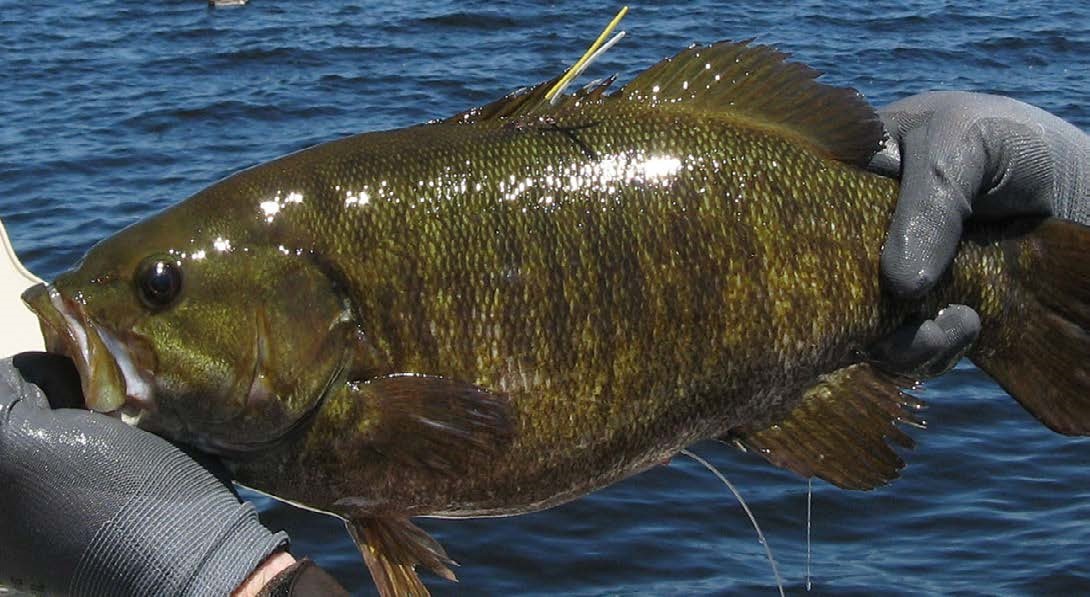Black Bass Health Following Tournaments
Apr. 4th 2014Black bass tournaments have risen in popularity in recent years, with events held in all 48 contiguous states in the U.S., as well as in Mexico and Canada. The events can host thousands of anglers, intensively fishing for large- and smallmouth bass during a short period of time. The tournaments are catch-and-release, and in recent decades the industry has lowered post-tournament mortality through the adoption of research-driven management recommendations (e.g. better monitoring and control of dissolved oxygen levels in holding tanks). In recent years, fisheries managers have shifted their concerns to “sub-lethal” tournament impacts. These impacts include injuries or stresses to fish held in tanks for long periods of time prior to release, or the “stockpiling” of fish at release sites. Since tournaments often capture, hold and subsequently release thousands of fish, sub-lethal impacts can result in detrimental impacts on the population. The fish often do not return to where they were caught, but remain localized to the release site, potentially changing the distribution of fish in large lakes. Mark Malchoff, Aquatic Resources Specialist for Lake Champlain Sea Grant, worked with other researchers at SUNY Plattsburgh’s Lake Champlain Research Institute to conduct research on the effects on large- and smallmouth bass as a result of tournaments, and ways to minimize stress and reduce effects on populations. Researchers attended fishing tournaments and following the official measurement and weigh-in, the fish were assessed for a variety of stress indicators, including fin damage. The presence of stress indicators provides indirect predictions of post-tournament mortality, and likelihood of dispersal away from release sites. A direct cause of stress to the fish is the elevated water temperature in livewells that are used for transport from the site of capture to the weigh-in location. There is the potential for livewell water temperatures to increase especially while traveling long distances. Warm water contains less dissolved oxygen than cooler water, and at lower oxygen levels, the fish are subjected to physiological stress, which manifests itself in the form of bloody fin rays, and lethargy. In addition, fish may struggle in the tank more, resulting in physical damage to fins. Research results confirmed that adequate water circulation and maintaining cool water temperature can dramatically reduce stress. Travel distance from capture site presents a problem for tournament organizers: release them near the weigh-in site to reduce time out of the lake or return them to their capture site but increase time in transport tanks. The researchers found that largemouth bass movements away from release sites were limited both geographically and through time, especially after being stressed, meaning that releasing many fish near the weigh-in location can result in an area with high fish density in the form of hundreds of new fish present. This could result in impacts to the local ecosystem, and increase the likelihood of fish being re-caught following the tournament and adding additional levels of stress or mortality. “We hope that both professional and amateur tournament operations can benefit from our work”, said Malchoff. “Bass tournaments represent an important sustainable use of our aquatic resources. For these events to be truly sustainable however, potential bass population impacts need to be managed. Our research generated some real-world lessons for tournament stakeholders, and we hope the findings will lead to improved tournament operations on Lake Champlain and elsewhere.” Recommendations for reducing stress and increasing survival includes
- Maintaining cool, well oxygenated water during transport and at weigh-in,
- Monitoring fish prior to release to determine if fish are stressed and require more recovery time before release,
- And releasing fish several kilometers off shore, but not to their original capture site to balance the time in transport and being located off shore.
These practices can help reduce immediate and delayed mortality of large-and smallmouth bass caught during fishing tournaments.
 ecoNEWS VT
ecoNEWS VT